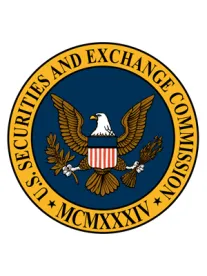On March 31, the Securities and Exchange Commission’s Division of Corporation Finance published a staff statement which outlines accounting, financial reporting, and governance issues that private companies should consider before completing a SPAC transaction. The statement is relevant in that it represents the SEC’s first public statement on the advance planning steps it recommends private companies undertake before weighing whether to go public via a combination transaction with a SPAC.
As SPACs are shell companies, business combinations of SPACs and private companies are subject to a variety of restrictions. According to the SEC, these limitations include the following:
-
Financial statements must be filed within four business days of the completion of the business combination.
-
The combined company cannot incorporate Exchange Act reports or proxy or information statements by reference on Form S-1 until three years after the completion of the business combination
-
The combined company is ineligible to use Form S-8 for the registration of compensatory securities offerings until at least 60 calendar days after the filing of Form 10 information.
-
The combined company is considered an “ineligible” issuer under Securities Act Rule 405 for three years following the completion of the business combination. As a result, the company may not use a free writing prospectus, may not conduct a roadshow that constitutes a free writing prospectus, and may not rely on the safe harbor of Rule 163A for pre-filing communications.
In its letter, the SEC also discusses the requirements of companies to implement robust protocols for maintaining books and records and establishing a system of internal accounting controls that protect the issuers’ assets. SPACs and private companies should consider the capacity of the combined company to meet requirements for annual or interim reporting, SEC disclosure requirements, and the adoption of new accounting standards. The SEC specifically noted the private companies weighing a potential combination transaction consider these requirements before the combination, as some private companies weighing a SPAC transaction may not have prior experience with annual or interim reporting, application of all SEC rules and disclosure requirements, and the accounting standards imposed on public companies. The SEC highlighted these requirements because it seemingly hopes to encourage private operating companies to invest in the “necessary expertise, books and records, and internal controls” necessary to provide “reasonable assurance of its timely and reliable financial reporting” to investors and the general public upon completion of the business combination. Without advance investment in these necessary items, the SEC worries that private companies may not be ready to undergo the combination transaction.
Another SPAC risk emphasized by the SEC relates to listing standards for national securities exchanges. Public listing on the New York Stock Exchange or the NASDAQ mandates that the combined company satisfy quantitative and qualitative listing standards when completing the business combination. A company seeking to go public through a SPAC must meet minimum quantitative standards for metrics like the number round lot holders, publicly held shares, market value of publicly held shares, and share price. Qualitative factors include standards of corporate governance that include majority independent boards of directors, independent audit committees, independent director oversight of executive compensation, and a universal code of conduct for all directors, executives, and employees. Private companies that are quickly acquired by SPACs may not have time to comply with these rigorous standards, potentially necessitating material risk disclosures or de-listing.
In sum, private companies weighing a potential combination transaction would do well to heed the SEC’s advice here and invest the requisite time and resources into the following:
-
An independent board of directors to govern the company;
-
An independent audit committee to oversee the preparation and audit of the company’s financial statements, among other items;
-
A robust books and record system to meet the requirements of Delaware law as well as the relevant accounting requirements for public companies;
-
Robust internal controls that govern both financial reporting and disclosures;
-
Rigorous financial reporting and accounting teams that are well-versed in the reporting requirements of public companies; and
-
Experienced personnel that have expertise in the various SEC rules and disclosure requirements for public companies.







 />i
/>i

